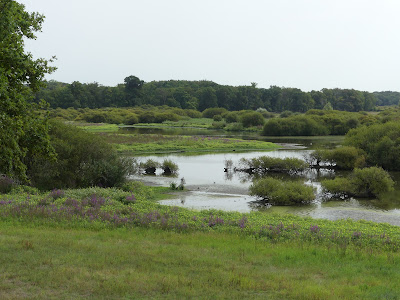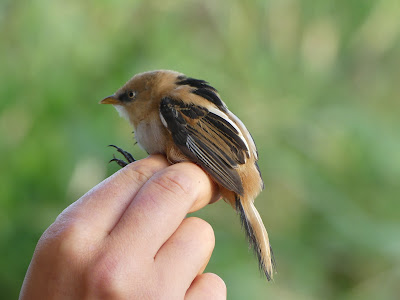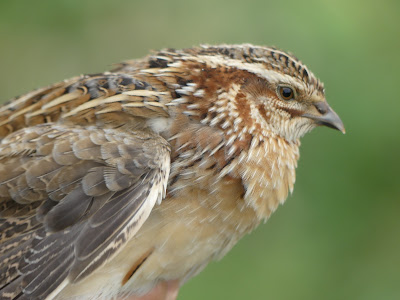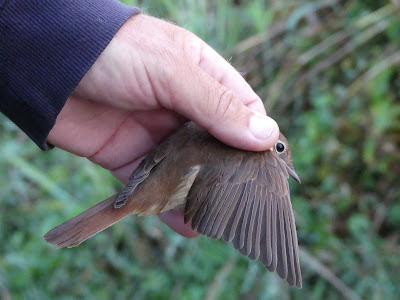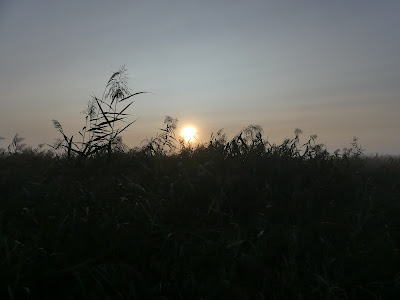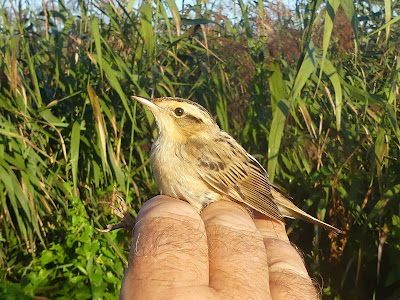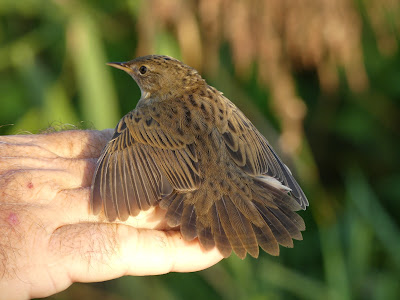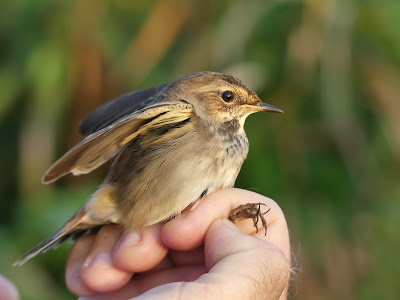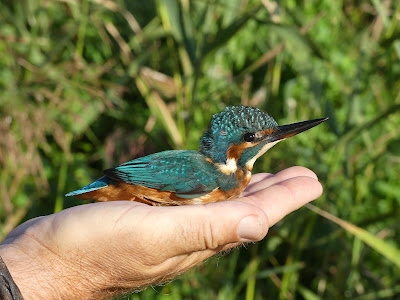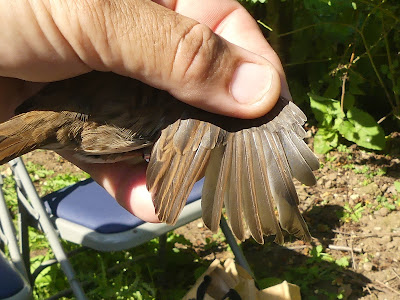23rd, Migration such as this are primarily a chance for trainee French ringers to gain experience and increase numbers as there is no 'C' permit equivalent and they must ring under the direction of a qualified person who passed the written examination and has completed several days of practical assessment and been found suitable to get a French permit. From now on this is the only site in operation and the gite is full. We decided, with two fully qualified ringers, six trainees of various standards and weather conditions unlikely to produce a fall, to take the day out and visit La Maison du Lac de Grand-Lieu. The lake is currently a third of the maximum winter size with distant views of all kinds of water birds.
We saw the resident ringers' base from la maison and wondered whether he ever catches any Sacred Ibis, an invasive species.
Best observation of the day was a new butterfly species, Lesser Purple Emperor on the tree by la maison.
That day reached a temperature of 40 degrees in the afternoon so we kept our observations at the lake quite brief.
In the evening we attended a roost catch, catching 127 birds, Sand Martin (65) and Swallow (62) to add to the morning total of 177 birds that included 2 Acrola.
24th, a morning affected by rain that resulted in finishing before 10am due to sustained incoming precipitation. 110 birds captured.
25th, another day with only 110 birds, as usual Sedge Warbler or Fragmit (ACRSCH) are the most numerous species captured in the reed bed. We did particularly well for Wryneck (4) today with singles of Quail and Bearded Tit.
26th, another rain affected session that soaked us a few times, although the low number of birds and number of people meant none were in the nets when the rain came. We soldiered to the end as we had a local group that came for a demonstration of the ringing. Ringing demos don't change much wherever they happen. 76 birds including Wryneck, Great Reed Warbler, Aquatic Warbler, Bluethroat, Savi's Warbler and Nightingale.
moth was the only capture that I recorded once the group arrived.
There was another roost catch that night. We missed it as only heard as the others were leaving. Just over 50 birds captured, mainly Swallow but also a one-legged Hobby.
27th, the birds are getting fewer and as our only use at present is to extract we left at 10:30am once it was clear there would be no rain or large bird numbers once the misty conditions had cleared. 88 birds in all of 12 species.

